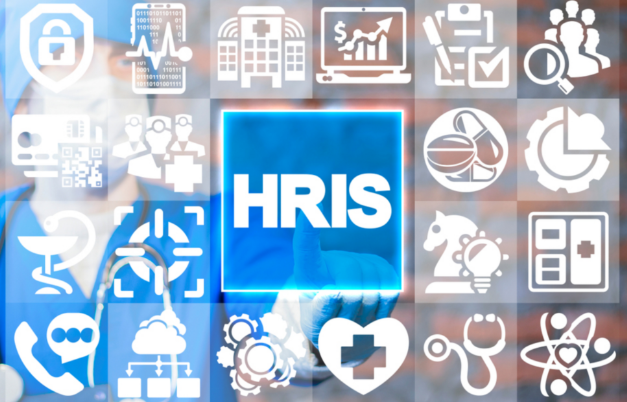HRIS Systems for Small Companies

HRIS Systems for Small Companies – An HRIS (Human Resource Information System) is a software solution that streamlines and automates many of the tasks involved in managing an organization’s workforce. HRIS systems can be used to track employee data, manage payroll, administer benefits, and more.
What is HRIS Systems for Small Companies

An HRIS (Human Resource Information System) is a software application that helps businesses manage their HR data and processes. HRIS systems can be used to track employee information, payroll, benefits, time and attendance, performance management, and more.
There are many different HRIS systems on the market, and the best system for a small business will depend on the specific needs of the business. However, some of the most popular HRIS systems for small businesses include:
- Rippling: Rippling is a cloud-based HRIS system that is designed to be easy to use and affordable for small businesses. Rippling integrates with a variety of other business applications, such as G Suite, Slack, and Salesforce, which can help to streamline workflows and save time.
- Gusto: Gusto is another popular cloud-based HRIS system that is known for its user-friendly interface and its comprehensive set of features. Gusto offers a variety of pricing plans to fit the needs of businesses of all sizes.
- BambooHR: BambooHR is a cloud-based HRIS system that is focused on helping businesses manage their employees. BambooHR offers a variety of features for onboarding, performance management, and employee engagement.
- Zenefits: Zenefits is a cloud-based HRIS system that offers a free plan for businesses with up to 5 employees. Zenefits offers a variety of paid plans with additional features, such as payroll, benefits administration, and compliance tracking.
- Paycor: Paycor is a cloud-based HRIS system that is known for its powerful reporting and analytics capabilities. Paycor offers a variety of pricing plans to fit the needs of businesses of all sizes.
Benefits of using an HRIS Systems for Small Companies
Running a small company is tough. You wear many hats, and streamlining processes is key. That’s where HRIS (Human Resource Information System) systems come in. These are software solutions that can revolutionize how you manage your most valuable asset – your employees.
Here’s why HRIS systems are a game-changer for small businesses:
- Boost Efficiency and Accuracy: Ditch the spreadsheets and manual data entry! HRIS automates repetitive tasks like payroll processing and employee record keeping. This saves you tons of time and minimizes errors.
- Compliance Made Easy: Employment laws can be complex. HRIS systems help ensure you’re following regulations, reducing the risk of costly fines.
- Smarter Decisions, Better Results: HRIS provides valuable data and insights on your workforce. Use it to make informed choices about hiring, training, and compensation.
- Happy Employees, Happy Business: HRIS systems empower employees with self-service options for tasks like updating personal information or requesting time off. This translates to a more engaged and productive workforce.
Beyond these core benefits, HRIS systems can also help small businesses:
- Attract Top Talent: By streamlining HR tasks, you free up time to focus on recruiting strategies. A well-managed HR system can give you a competitive edge in the talent market.
- Company Culture that Thrives: Track employee engagement data with HRIS to identify areas for improvement and build a positive company culture.
- Future-Proof Your Business: HRIS lets you collect and analyze data on workforce trends, helping you stay ahead of the curve and make strategic decisions.
In short, HRIS systems are an investment in your company’s success. They can save you time, money, and help you build a strong foundation for future growth.
Choosing the right HRIS Systems for Small Companies
When choosing an HRIS system for your small company, it is important to consider your specific needs and budget. Some factors to consider include:
- The size of your company: Some HRIS systems are better suited for small companies with a few employees, while others are designed for larger companies with hundreds or even thousands of employees.
- Your budget: HRIS systems can range in price from a few hundred dollars per year to tens of thousands of dollars per year.
- The features you need: Some HRIS systems offer a wide range of features, while others are more focused on core HR functions such as payroll and benefits administration.
- The ease of use: The HRIS system you choose should be easy to use for both employees and HR staff.
- The vendor’s reputation: It is important to choose a vendor with a good reputation for providing quality software and support.
In addition to these popular options, there are many other HRIS systems available for small businesses. When choosing an HRIS system, it is important to consider the specific needs of your business, such as your budget, the number of employees you have, and the features that are most important to you.
Getting started with an HRIS system
Once you have chosen an HRIS system, you will need to implement it in your organization. This process will involve configuring the system, training your employees, and migrating your data.
Implementing an HRIS system can be a daunting task, but it is important to take the time to do it right. A well-implemented HRIS system can save you time and money, improve compliance, and help you make better decisions about your workforce.
In addition to the benefits listed above, HRIS systems can also help small companies:
- Attract and retain top talent: By automating many of the tasks involved in HR administration, HRIS systems can free up HR staff to focus on more strategic initiatives, such as talent acquisition and retention.
- Develop a strong company culture: HRIS systems can be used to track employee engagement data, which can help companies identify areas where they can improve their company culture.
- Prepare for the future: HRIS systems can be used to collect and analyze data on a variety of workforce trends, which can help companies prepare for the future.
Overall, HRIS systems can be a valuable asset for small companies of all sizes. By automating tasks, improving accuracy, and providing valuable data, HRIS systems can help companies save time, money, and make better decisions.



